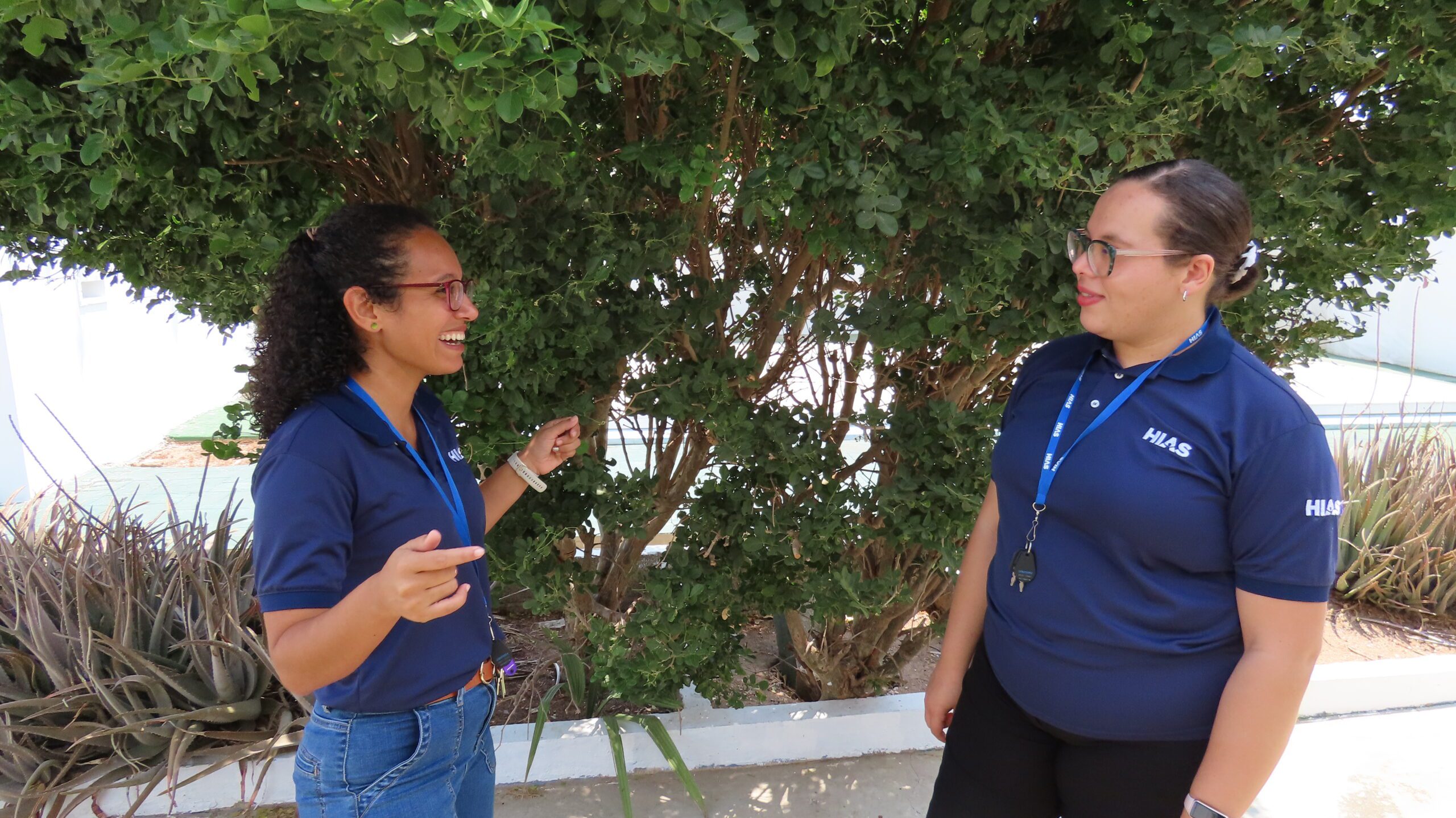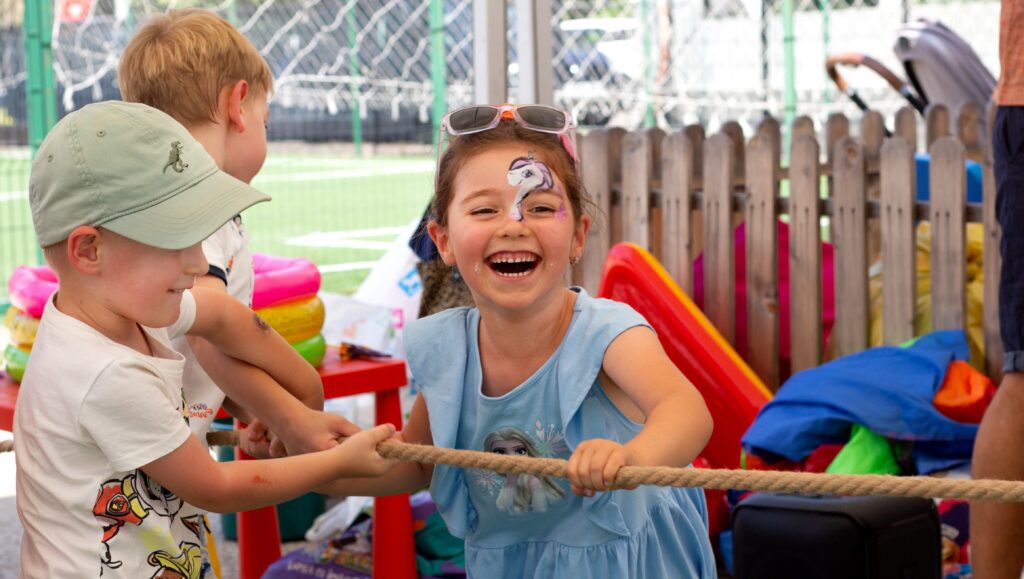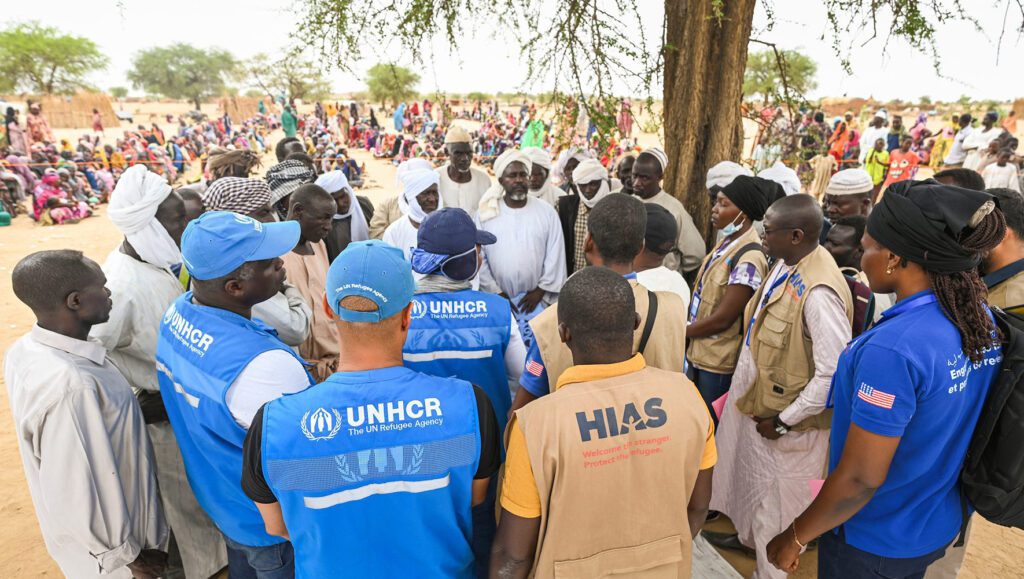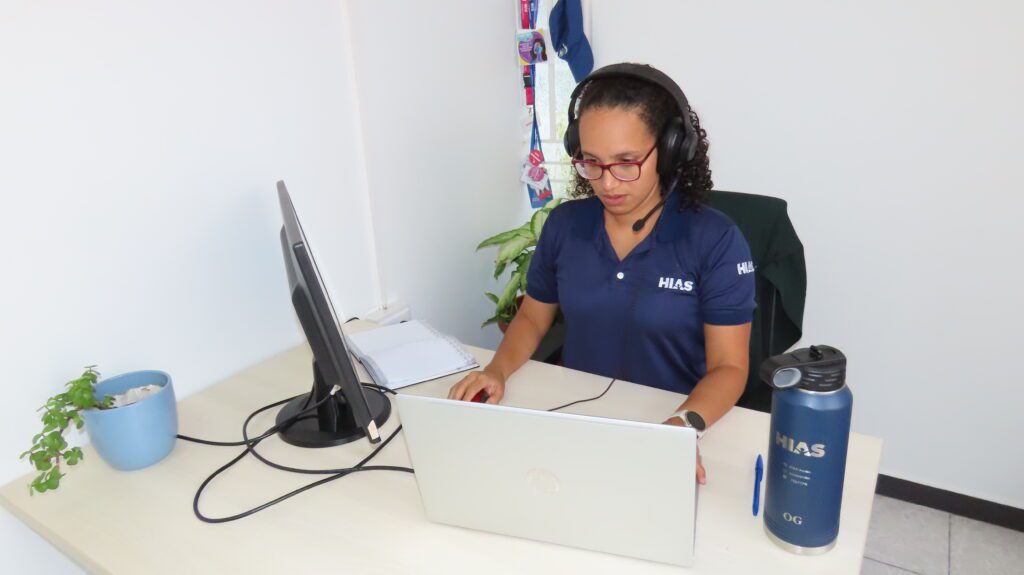
Estefanie Britton, a native of Aruba, has a view of the island’s capital Oranjestad from her office window. However, the reach of her work expands far beyond the city limits.
Britton serves as a project specialist for HIAS’ Caribbean remote services program, where she works with a team to assist people and build relationships with local organizations in islands such as Jamaica, Sint Maarten, Barbados, and the Bahamas.
“It feels gratifying to support people across such a broad geographic reach,” she said.
This program, implemented by the UN Refugee Agency (UNHCR) and HIAS, provides asylum seekers and refugees in 17 islands and territories across the Caribbean with cash and voucher assistance, skills training, protection services, and mental health support.
However, service provision isn’t the only focus of the program.
The program has a localization component, which seeks to strengthen long-term, locally based solutions to humanitarian problems. UNHCR and HIAS program staff work to empower local organizations to lead and deliver humanitarian aid while delivering remote services. To achieve this, the team trains local service providers in skills that fill gaps the community has identified.
Localization contrasts with traditional models of providing humanitarian assistance, in which a centralized organization makes decisions and distributes aid on behalf of communities often located far from the organization’s headquarters. Many experts believe that this arrangement perpetuated inequalities and exacerbated power imbalances. This is what localization seeks to change.
“It’s important to share capacities with local organizations as they are often the first responders on the islands,” said Lauren Schoenster, protection associate at the Caribbean Protection Unit, for UNHCR. “Working with local partners helps us to achieve better outcomes for our participants.”
Making a Lasting Impression Across Different Islands
Britton and the team of HIAS and UNHCR project staff have focused their localization efforts on two main areas: mental health and psychosocial support (MHPSS), and gender-based violence (GBV) response and prevention.
This process has entailed providing training to local organizations that are interested in expanding their psychological first-aid and emergency GBV case management operations. By providing capacity-building sessions, HIAS and UNHCR hope local communities will have more decision-making power and access to resources for humanitarian response in the future.
Additionally, the entire Caribbean team at HIAS is multilingual — they all speak English and Spanish, along with other local languages such as Papiamento. This facilitates the communication, accountability, and training process with organizations as staff carry out sessions in the local language.
So far, HIAS and UNCHR have carried out 13 capacity-building sessions with local organizations across the Caribbean, including Safe Haven Sint Maarten and Safe Bahamas, among others.
“In the Caribbean, services are very challenging to access for refugees and migrants,” said Francesco Volpi, the director for HIAS in the Caribbean. “That’s why we want to improve the local response capacity and to make quality services available to more people.”



